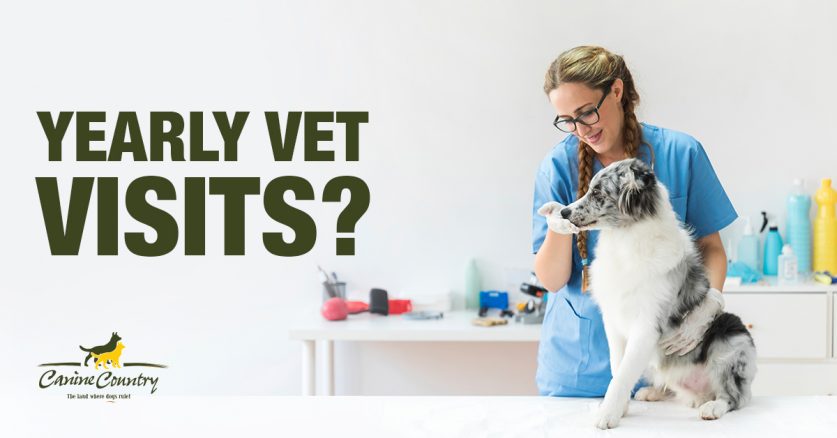
Should My Dog Visit the Vet Yearly?
Posted Apr 15, 2019 in Health & Safety
Your dog is part of the family, so you want to make sure they’re health is being treated that way. For many pet parents, it’s hard to decide how many times a healthy amount of vet visits is though. To help you out here are some recommendations based on your four-legged friend’s age.
When Your Puppy Should Be Seeing The Vet
From birth till about their about 16 weeks old, your puppy should be seeing their vet at least once every month. This will allow them to get all the necessary vaccines they need, as well as ensuring they are growing happy and healthy. When taking your pup to the vet make sure to use a crate. It can be tempting to just hold your little furball in your arms. But they tend to have an enormous amount of energy that could lead to them getting hurt in the car if you’re not careful. When your pup is visiting, that’s the time to ask any and all of your questions concerning their health and development.
When Your Adult Dog Should Be Visiting The Vet
Your typical breed is not considered an adult dog until they are around 2 or 3 years old. But after they reach six months, they will probably only need to see their vet annually. Those visits will consist of necessary vaccines, a physical from head to paw, as well as blood work. Many vets also ask that you try to bring in stool samples of your furry friend. That will allow them to check for any other concerns.
How Many Times Your Senior Dog Should Be At The Vet
Your dog will be considered a senior usually around the ages of 8 to 10. During these older years, your vet will be looking for any physical changes. These will be mostly due to your dog’s aging experience. They may even discuss a dietary shift depending on your dog’s state of health. Usually, a senior dog will see their vet biannually just because they are more prone to experience health problems. Making sure Fido is seeing their vet regularly will help address and health issues early on, keeping them happy and healthy longer.
If an emergency arises or you think something is off about your canine companion, you should always make an extra visit to the vet before your usual scheduled appointment. Even if you think it’s not a big deal, your pup could be dealing with more than you think. It’s always better to be safe rather than sorry.